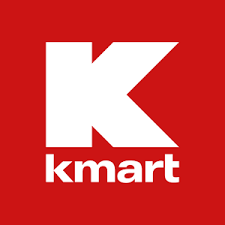Kmart Corp will pay $42 million to the federal government and a number of states to settle a whistleblower lawsuit that alleged Kmart overcharged government healthcare programs and private insurers for generic prescription drugs.
The whistleblower case – filed in 2008 by Phillips & Cohen on behalf of former Kmart pharmacist James Garbe – alleged that from 2004 to 2016 Kmart charged Medicare, Medicaid and Tricare as well as private insurers more for generic prescription drugs than it charged customers who paid cash.
Pharmacies are required to bill government insurance programs the lowest price offered to cash-paying customers.
A federal district judge in the Southern District of Illinois indicated December 22 that she would approve the settlement, bringing an end to the nearly 10-year-old case.
The $42 million settlement includes $32.3 million that will go to the federal government as well as additional sums that will be paid to various states to settle Medicaid false claims allegations and allegations that Kmart improperly billed private insurers higher prices for generic prescription drugs in violation of the California Insurance Fraud Prevention Act and the Illinois Insurance Claims Fraud Prevention Act.
The whistleblower’s attorneys, Phillips & Cohen joined by co-counsel Korein Tillery, litigated the case against Kmart on their own without government assistance.
As a result, Garbe will receive a whistleblower award of 29 percent of the federal government’s recovery – $9.3 million – which is nearly the maximum percentage whistleblowers can be awarded under the False Claims Act.
He also will be awarded shares of the state recoveries as specified under state false claims and insurance fraud laws.
The False Claims Act requires the government to decide whether it will join a qui tam case, which depends on many factors.
When the government does not intervene, the law allows whistleblowers to litigate qui tam lawsuits on their own to recover funds for the government and receive a reward of 25 percent to 30 percent of the federal government’s recovery.
“The settlement shows we were right to continue to pursue the case on behalf of taxpayers, despite the government’s decision not to join the qui tam lawsuit,” said Erika A. Kelton, a whistleblower attorney and partner at Phillips & Cohen. “Not only did we recover funds for taxpayers, we also stopped a practice that would have been an improper drain on government healthcare funds.”
Kmart waged a fierce legal battle to get the qui tam case dismissed after it was unsealed seven years ago, taking the litigation all the way to the US Supreme Court.
The Supreme Court declined in January to hear Kmart’s appeal of a US Seventh Circuit Court of Appeals decision in 2015 that ruled against Kmart and denied the company’s request to dismiss the case.
“This was a hard-fought victory for our client and for taxpayers,” said Larry Zoglin, a whistleblower attorney who is Of Counsel to Phillips & Cohen. “It is wrong for a pharmacy to charge government healthcare programs more than it charges cash-paying customers for the same prescription.”
According to the whistleblower’s complaint, Kmart sold a 30-day supply of a generic version of a popular prescription drug for $5 to customers who registered for a discount program but Kmart sought reimbursement from the government for $152 for the same drug for Medicare customers, which Kmart claimed was the “usual and customary” price.
Garbe worked for a Kmart pharmacy in Ohio when he discovered that Kmart was charging Medicare customers significantly more for generics than it was charging customers enrolled in its cash discount program. He had filled a personal prescription at the pharmacy and saw that Kmart claimed to his Medicare Part D insurer that the prescription cost $60 rather than the much lower price of $15 that it charged cash-paying customers in its discount program.
Kmart argued in court that it could exclude the lower prices that it charged members of its discount program when determining the proper price – known as the “usual and customary price” – to charge government healthcare programs. But the appeals court shredded that argument.
“The ‘usual and customary’ price requirement should not be frustrated by so flimsy a device as Kmart’s ‘discount programs,’” the court wrote in its opinion.
